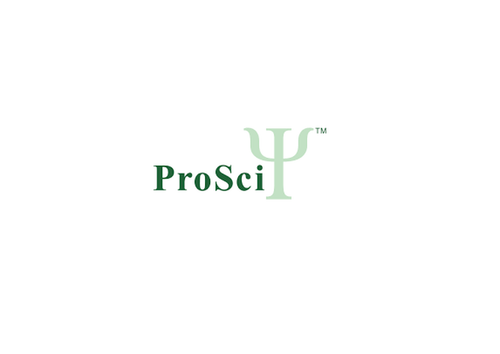Product Description
COMT Antibody, KO Validated | 18-276 | ProSci
Host: Rabbit
Reactivity: Human, Mouse, Rat
Homology: N/A
Immunogen: Recombinant fusion protein containing a sequence corresponding to amino acids 42-221 of human COMT (NP_009294.1) .
Research Area: Neuroscience, Signal Transduction
Tested Application: WB, IHC, IF
Application: WB: 1:500 - 1:2000
IHC: 1:50 - 1:200
IF: 1:50 - 1:200
Specificiy: N/A
Positive Control 1: 293T
Positive Control 2: N/A
Positive Control 3: N/A
Positive Control 4: N/A
Positive Control 5: N/A
Positive Control 6: N/A
Molecular Weight: Observed: 24kDa, 28kDa
Validation: Antibody is Knockout validated.
Isoform: N/A
Purification: Affinity purification
Clonality: Polyclonal
Clone: N/A
Isotype: IgG
Conjugate: Unconjugated
Physical State: Liquid
Buffer: PBS with 0.02% sodium azide, 50% glycerol, pH7.3.
Concentration: N/A
Storage Condition: Store at -20˚C. Avoid freeze / thaw cycles.
Alternate Name: COMT, catechol-O-methyltransferase, HEL-S-98n
User Note: Optimal dilutions for each application to be determined by the researcher.
BACKGROUND: Catechol-O-methyltransferase catalyzes the transfer of a methyl group from S-adenosylmethionine to catecholamines, including the neurotransmitters dopamine, epinephrine, and norepinephrine. This O-methylation results in one of the major degradative pathways of the catecholamine transmitters. In addition to its role in the metabolism of endogenous substances, COMT is important in the metabolism of catechol drugs used in the treatment of hypertension, asthma, and Parkinson disease. COMT is found in two forms in tissues, a soluble form (S-COMT) and a membrane-bound form (MB-COMT) . The differences between S-COMT and MB-COMT reside within the N-termini. Several transcript variants are formed through the use of alternative translation initiation sites and promoters.
 Euro
Euro
 USD
USD
 British Pound
British Pound
 NULL
NULL






![[KO Validated] COMT Polyclonal Antibody [KO Validated] COMT Polyclonal Antibody](https://cdn11.bigcommerce.com/s-452hpg8iuh/images/stencil/500x659/products/295389/455526/sab-signalway-antibody__92073.1641690747__45140.1641691387.gif?c=2)
![[KO Validated] COMT Polyclonal Antibody [KO Validated] COMT Polyclonal Antibody](https://cdn11.bigcommerce.com/s-452hpg8iuh/images/stencil/500x659/products/605335/857363/enogene__70285.1648844242__57517.1649167221.png?c=2)
![[KO Validated] COMT Rabbit pAb [KO Validated] COMT Rabbit pAb](https://cdn11.bigcommerce.com/s-452hpg8iuh/images/stencil/500x659/products/396021/574494/unnamed-776x1024__91681.1646254488__92229.1646256048__69399.1646652108.png?c=2)

